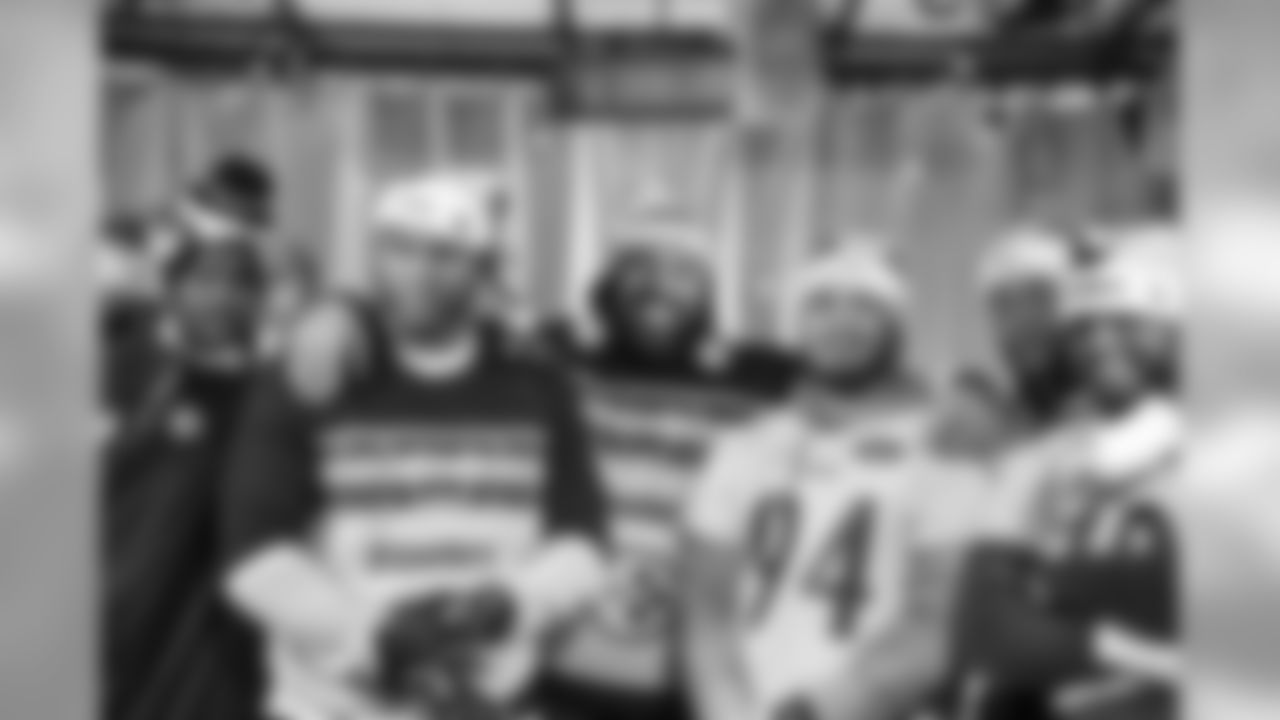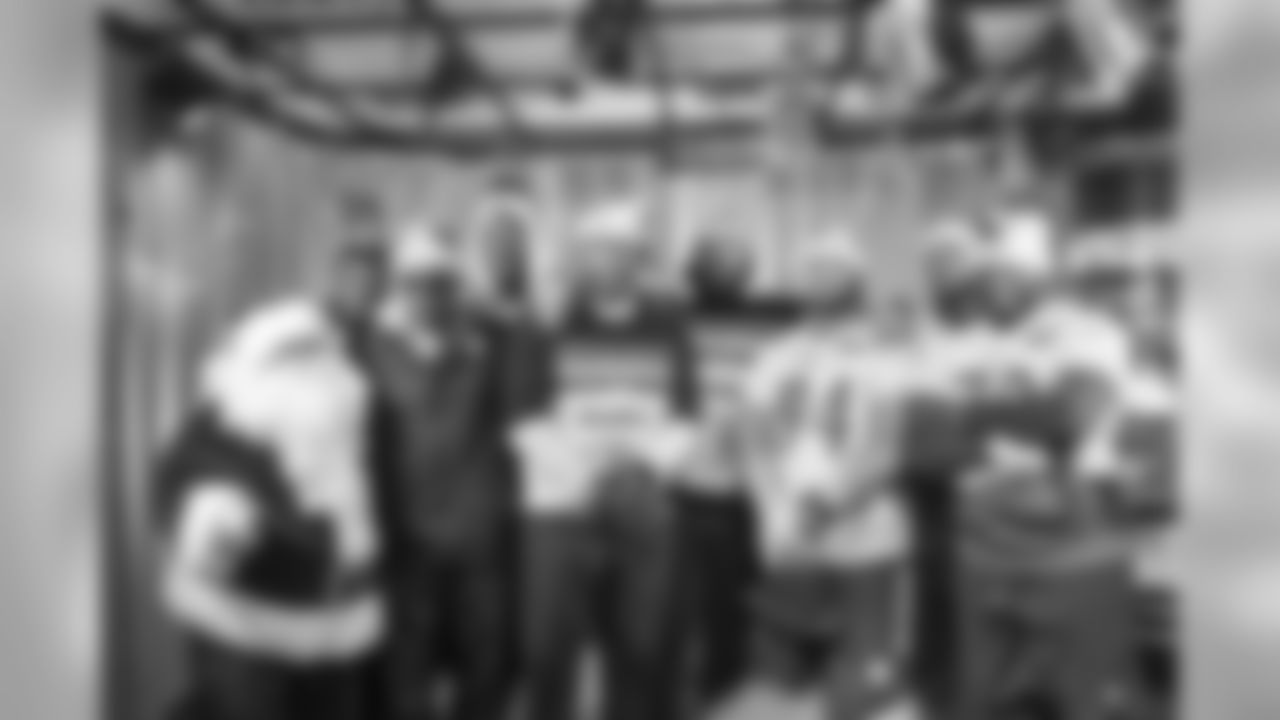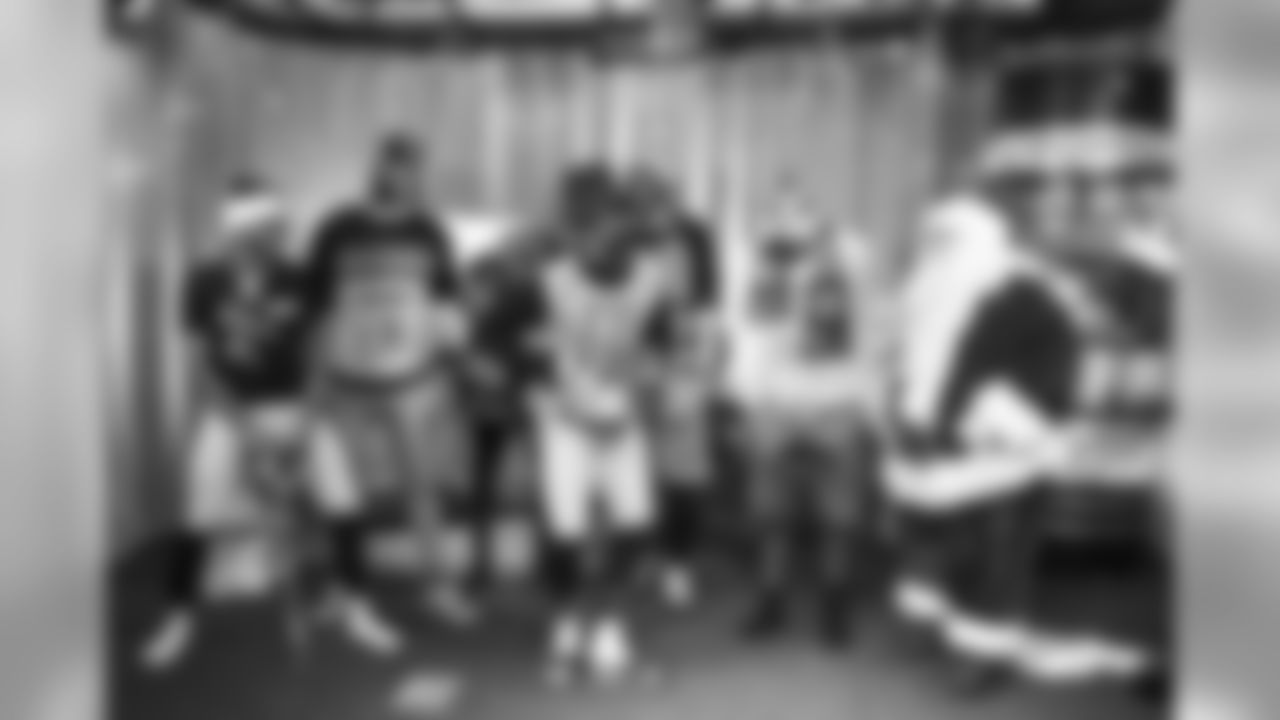**
Q. The loss last week played havoc with my emotions, and so I can only imagine what it was like for the players. Did you notice any lingering effects at any point during the early part of this week?**
A. Certainly. Not only the nature of the way we lost, but quite frankly, we hadn't lost a lot this year. And so the process that we like to openly talk about – preparation, play, evaluation of play, repeat process – the tone of that process is a little different when you're unsuccessful. When I mean by unsuccessful is that we have a job to do every week, and that job is to win. So, there are lingering effects to that. It can't show in our efforts in terms of this game, and we'll get an opportunity to move beyond it.
Q. Did they snap out of it?
A. I just think time is the only thing that heals certain wounds from a professional sports perspective. And that's just the reality of it. We're all a product of our experiences, some of our experiences shape us and change us forever. That's just the nature of this thing and the importance of some of these games and how they unfold. We all carry a little bit of how games unfold with us as we proceed, but that's the experience that allows us to deal with the next challenges as we all grow.
Q. I'd like to revisit a couple of the things you said at your news conference last Tuesday. You said: "I find comfort in the fact that No. 7 is my quarterback. If everybody on the field is uncomfortable, then that's advantage Pittsburgh Steelers." Can you explain what you mean there?
A. It's simple. Sometimes the kitchen is going to get hot in big moments and in big games and so forth, and when you have a guy who's not only talented but is a seasoned veteran guy who has been in those moments time and time again over the course of a 14-year career, there is an advantage in that. Just like there's an advantage for Tom Brady to have the ball in his hand when his offensive football team is in those moments. Not only is he tremendously talented, but he has been doing it for a unique number of years – 18 years. I think when you have unique talents coupled with unique experience, then certainly there is an advantage there in those moments.
Q. You also said that since Ben is a veteran quarterback and the guy inside the helmet on the field, he has latitude to go with his gut. You called it normal operating procedure. Why do you believe that's the way to handle things?
A. Because you get those moments and you get them once, and you have a guy under center who plays the game and has played the game and has that in-helmet perspective and experience. If he has certain feelings based on things he sees in-game, you have to give him the latitude to do the things that experience tells him to do. And then we can have a discussion after, but the worst thing you can do is to miss an opportunity that he knows he's looking at, or that his experience tells him is not a good one, and not allow him to play to those gut instincts. I'm sure it's no different if you have a seasoned veteran point guard on a basketball team.
Q. Are there any rules about who is allowed to call timeouts in the NFL?
A. There are. Anybody on the field can call a timeout, but we have meetings with officiating crews prior to the game and talk about procedure. A number of years ago, they extended that ability to call timeouts to the sideline, that a person didn't have to be on the field to call a timeout, and I think that rule changed all things. From that moment on, coaches wanted to seize control of that, and that's standard operating procedure for us, and for most people. Someone on the field may relay a request from me, but generally all timeouts are called by me.
Q. Why do you believe that's the way to handle that situation?
A. I just want to eliminate that process from other people's thinking. There might be some circumstances that may lead someone to believe that a timeout is necessary, and I may view it differently. We may be in a situation where the play-clock is running down, and I may choose a delay of game penalty and preserve the timeout. Those are decisions I make, and I don't want to put them on anyone else in terms of what is a good utilization of a timeout and what is not.
**
Q. Do you have rules for yourself pertaining to how and when to use timeouts?**
A. I have guidelines, but game circumstances change those guidelines.
Q. Early last week, you put James Conner on IR and signed Stevan Ridley. What did you like about him to make that move?
A. I like his complete body of work, his run-style. I have known him over the years. It seems like every year I'm in Baton Rouge for LSU's Pro Day, and that's the type of program that is. I not only met him at his Pro Day, but I've seen him at subsequent Pro Days. As a professional, he goes back to Baton Rouge and trains. I just have a lot of respect for him. Got to know him over the years, and I always thought if given the opportunity to work with him, I'd be open to it. I like his style of play. The opportunities aligned, he was available, and I look forward to working with him over the next couple of weeks.
Q. Winning these last two regular season games secures a first-round bye in the playoffs. As you see it from a coach's standpoint, what is beneficial about that, as opposed to being on a roll at the end of the regular season and not breaking that momentum?
A. Quite simply, it is a free pass to round two in the playoffs. You'll take passes to rounds in the playoffs. You step into a stadium and you have an opportunity to win, likewise you step into a stadium and you have an opportunity to lose. First-round byes are just that – you get a pass to the second round. Obviously, that's something of value, but it also gives us an opportunity to get guys who are carrying nicks and so forth healthy. Guys like Antonio Brown and others who may be on a short list of guys who could be better with a week's rest. So, whenever you're given an opportunity, you take that. You don't worry about rust and things of that nature. That's just media fodder as you come out of the bye. You want the bye.
Q. Antonio Brown isn't playing today because of a calf injury, and you've said often that he's the best in the world at what he does. Based on that, is it realistic for "the standard is the standard" rule to apply to whomever takes his spot, or are willing to make allowances?
A. Allowances in that his responsibilities or contributions are going to be spread out over a number of guys, not just the guy who occupies his spot. That's how you talk about it. To me, there is going to be some guy who occupies his spot on the field, but the reality is that in all likelihood the ball is going to be spread around more, and other guys, a lot of guys, are going to be given an opportunity to absorb that production.
**
Steelers players have fun singing annual Christmas carols.















Q. In situations like this when you're without an All-Pro on offense, do you, for example, go to Le'Veon Bell and tell him that you're going to need more from him, or is it something that's understood?**
A. Those conversations don't need to be had. Those things are assumed. Guys like Le'Veon Bell come to you. They wear those responsibilities. Those guys understand the responsibility associated with being them, and they embrace that.
Q. Is DeAndre Hopkins the second-best in the world at what he does?
A. He's arguably that. I've been really impressed with his video this week in studying him. That's often the case. I get asked a lot about who is the best at this or that, and the bottom line is I'm always going to say Antonio because I see the totality of his work. I see the impact of his work. I see the preparation that leads to his production. It's difficult to argue with any of those things from my perspective. I watch the other guys in a very casual way, unless I'm preparing for them. I studied Hopkins this week, and I'm very impressed by what I see. He's one of the best in the world at what he does.
Q. NRG Stadium has a retractable roof. What are the rules for having that open vs. closed for a game?
A. Man, there is a lot of gray. All I know is if that roof starts closed then it's going to stay closed, and if it starts open then the only way they're going to close it is if Mother Nature dictates. All of the other parameters, I just leave it to the cities with the retractable roof.
Q. From the NFL's perspective, is there a time deadline when that decision has to be made?
A. I believe it's 90 minutes before kickoff, just like it is designating the inactives. But again, I hadn't spent a lot of time studying it, because it's not my problem.
Q. But isn't there a fairness component to this?
A. Once the decision gets made, it's made, and the rules are in place so that it's not a fairness discussion, and so that's why I really don't care what the rule is. Those grounds have been covered, so I think we're insulated from the potential of those things. That's why we don't spend a lot of time discussing it.














